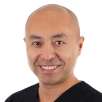LONDON – A UK online adviser for medical treatment has investigated the latest trends in overseas travel for dental treatment. The company conducted a survey that revealed new insights into the travel destination, kind of treatment and patients’ satisfaction with procedures and services abroad. The study is the largest of its kind in Europe.
According to the medical advice websiteTreatment Abroad, little research has been conducted on patients’ experiences and satisfaction with the treatment and services in other countries. Thus, the website recently conducted an online survey of 1,045 respondents, of whom 55 per cent were UK citizens.
The survey revealed that patients had travelled to other countries mainly for cosmetic surgery (34 per cent) and dental treatment (30 per cent), followed by orthopaedic surgery (7 per cent), obesity surgery (7 per cent) and infertility treatment (6 per cent). A smaller number of patients had travelled for eye surgery or cancer therapy, among others.
More women had travelled abroad for treatment than men. The survey showed that overall 63 per cent of the patients were female, while only 37 per cent were male. For dental treatment only, the split was 52 per cent to 48 per cent.
The majority of those who had travelled abroad for treatment were 40 to 49 years old (25 per cent) and the second largest age group was 50 to 59 (22 per cent). The survey showed that 64 per cent of the dental patients were over the age of 50.
Hungary was the most popular destination for dental treatment (32 per cent), followed by Poland (14 per cent) and Turkey (11 per cent). Dentistry treatment involved mostly dental implants (42 per cent), crowns (20 per cent) and dental bridges (11 per cent), but a number of patients had also travelled for root-canal treatment (5.2 per cent) and veneers (4.3 per cent).
The survey found that the dental patients had made the most trips because treatment involved several sessions. Of all respondents treated for dental problems, almost 32 per cent made one trip, another 32 per cent made two trips, about 19 per cent made three trips and 17 per cent made four or more trips. The respondents stayed for an average of 15 days.
For most respondents, cost was the deciding factor for travelling abroad for treatment. The majority of the patients treated for dental problems (94.5 per cent) reported that it was very or quite important to them to save on their treatment costs. Approximately 20 per cent spent less than £1,000 (€1,200) and another 20 per cent spent between £1,000 and £2,000. About three-quarters of the respondents had to pay for any aftercare and follow-up treatment in their own country, and for the cost of tests and investigations done in their own country before travelling.
The level of satisfaction with treatment was generally high in the survey. Eighty-eight per cent of the respondents who had undergone dental treatment abroad stated that they were very or quite satisfied with their experience. Almost 65 per cent had no reservations about repeating the trip.
The reasons for the patients’ satisfaction included the quality of work, good results, facilities, aftercare, low price, and professionalism of the staff, among others. However, patients complained, for example, about unnecessary treatment and that corrective treatment was sometimes needed because complex treatments that would have involved several visits were completed in fewer sessions.
The researchers were surprised to find that 51 per cent of the respondents had travelled for treatment to a country they had never been to before and that less than one in ten respondents had special travel insurance for medical treatment in another country. About 32 per cent did not have any travel insurance.
Treatment Abroad is a web portal on medical tourism services for people seeking information about surgery, dentistry and infertility treatment abroad. The site is run by Intuition Communication, a web publisher in the health-care sector.
LONDON, UK: According to a recent survey carried out by the British Dental Association (BDA), an increasing number of dental patients in the UK are seeking ...
LONDON, UK: In celebration of World Oral Health Day, representatives of the FDI World Dental Federation presented the latest findings on oral health on 20 ...
RUGBY – A recently published survey has revealed that six out of ten respondents born in the 1960s or earlier are most likely to regret not having ...
LONDON – According to TeethWise, a cosmetic dental clinic search and cost comparison website, the number of people travelling for dental treatments ...
YORK, UK: Today, a considerable number of governments and decision-makers recognise medical tourism, that is, patient movement for medical care, including ...
The evolving socio-demographics of patients means dentists must be better equipped to identify oral signs of systemic diseases and treat elderly patients ...
LIVERPOOL/PLYMOUTH, UK: The connection between oral health and chronic disease has been increasingly supported by substantial evidence, revealing shared ...
LEEDS – Last week, the National Health Service (NHS) released the latest statistics regarding the number of patients seen by NHS dentists in England ...
LONDON, UK: Factors such as glucose metabolism, nutrition, oxidative stress and ageing drive periodontal progression. However, current periodontal ...
LONDON, UK: Though the mutually influential relationship between diabetes and periodontal disease has been well established, there has been limited guidance...
Live webinar
Tue. 16 April 2024
8:00 pm UTC (London)
Live webinar
Wed. 17 April 2024
3:00 pm UTC (London)
Live webinar
Wed. 17 April 2024
5:00 pm UTC (London)
Dr. Alexander Nussbaum Head of Scientific & Medical Affairs, Philip Morris GmbH, Dr. Björn Eggert
Live webinar
Wed. 17 April 2024
11:00 pm UTC (London)
Dra. Gabriella Peñarrieta Juanito
Live webinar
Thu. 18 April 2024
4:00 pm UTC (London)
Live webinar
Mon. 22 April 2024
3:00 pm UTC (London)
Prof. Dr. Erdem Kilic, Prof. Dr. Kerem Kilic
Live webinar
Tue. 23 April 2024
6:00 pm UTC (London)



 Austria / Österreich
Austria / Österreich
 Bosnia and Herzegovina / Босна и Херцеговина
Bosnia and Herzegovina / Босна и Херцеговина
 Bulgaria / България
Bulgaria / България
 Croatia / Hrvatska
Croatia / Hrvatska
 Czech Republic & Slovakia / Česká republika & Slovensko
Czech Republic & Slovakia / Česká republika & Slovensko
 Finland / Suomi
Finland / Suomi
 France / France
France / France
 Germany / Deutschland
Germany / Deutschland
 Greece / ΕΛΛΑΔΑ
Greece / ΕΛΛΑΔΑ
 Italy / Italia
Italy / Italia
 Netherlands / Nederland
Netherlands / Nederland
 Nordic / Nordic
Nordic / Nordic
 Poland / Polska
Poland / Polska
 Portugal / Portugal
Portugal / Portugal
 Romania & Moldova / România & Moldova
Romania & Moldova / România & Moldova
 Slovenia / Slovenija
Slovenia / Slovenija
 Serbia & Montenegro / Србија и Црна Гора
Serbia & Montenegro / Србија и Црна Гора
 Spain / España
Spain / España
 Switzerland / Schweiz
Switzerland / Schweiz
 Turkey / Türkiye
Turkey / Türkiye
 UK & Ireland / UK & Ireland
UK & Ireland / UK & Ireland
 International / International
International / International
 Brazil / Brasil
Brazil / Brasil
 Canada / Canada
Canada / Canada
 Latin America / Latinoamérica
Latin America / Latinoamérica
 USA / USA
USA / USA
 China / 中国
China / 中国
 India / भारत गणराज्य
India / भारत गणराज्य
 Japan / 日本
Japan / 日本
 Pakistan / Pākistān
Pakistan / Pākistān
 Vietnam / Việt Nam
Vietnam / Việt Nam
 ASEAN / ASEAN
ASEAN / ASEAN
 Israel / מְדִינַת יִשְׂרָאֵל
Israel / מְדִינַת יִשְׂרָאֵל
 Algeria, Morocco & Tunisia / الجزائر والمغرب وتونس
Algeria, Morocco & Tunisia / الجزائر والمغرب وتونس
 Middle East / Middle East
Middle East / Middle East
:sharpen(level=0):output(format=jpeg)/up/dt/2024/04/Dentists-fear-DIY-tooth-extractions-as-Wales-hikes-NHS-fees.jpg)
:sharpen(level=0):output(format=jpeg)/up/dt/2024/04/UK-health-authorities-urged-to-update-dental-antibiotic-guidelines-for-potential-endocarditis-patients.jpg)
:sharpen(level=0):output(format=jpeg)/up/dt/2024/04/Oral-health-inequalities-remain-a-major-public-health-concern-in-the-UK.jpg)
:sharpen(level=0):output(format=jpeg)/up/dt/2024/03/Dental-students-are-not-exempt-from-risk-of-sharps-injuries.jpg)
:sharpen(level=0):output(format=jpeg)/up/dt/2024/03/Henriette-Lerner.jpg)








:sharpen(level=0):output(format=png)/up/dt/2014/02/EMS.png)
:sharpen(level=0):output(format=png)/up/dt/2022/01/Sprintray_Logo_2506x700.png)
:sharpen(level=0):output(format=png)/up/dt/2010/11/Nobel-Biocare-Logo-2019.png)
:sharpen(level=0):output(format=png)/up/dt/2023/06/Align_logo.png)
:sharpen(level=0):output(format=png)/up/dt/2023/03/ACTEON_NEW-logo_03-2024.png)
:sharpen(level=0):output(format=jpeg)/up/dt/e-papers/336495/1.jpg)
:sharpen(level=0):output(format=jpeg)/up/dt/e-papers/332768/1.jpg)
:sharpen(level=0):output(format=jpeg)/up/dt/e-papers/328090/1.jpg)
:sharpen(level=0):output(format=jpeg)/up/dt/e-papers/324687/1.jpg)
:sharpen(level=0):output(format=jpeg)/up/dt/e-papers/321656/1.jpg)
:sharpen(level=0):output(format=jpeg)/up/dt/2022/11/DTUK0122_01_Title.jpg)
:sharpen(level=0):output(format=jpeg)/up/dt/2017/01/73df8f5e3ba7ca6e64e77bf3f0f19aaf.jpg)

:sharpen(level=0):output(format=jpeg)/up/dt/2024/04/Dentists-fear-DIY-tooth-extractions-as-Wales-hikes-NHS-fees.jpg)
:sharpen(level=0):output(format=gif)/wp-content/themes/dt/images/dt-user.gif)
:sharpen(level=0):output(format=jpeg)/up/dt/2022/07/Dental-tourism-among-UK-patients-is-on-the-rise-BDA-reports.jpg)
:sharpen(level=0):output(format=jpeg)/up/dt/2017/01/0874cc639ef6097b7f3df67a6e5f5ec8.jpg)
:sharpen(level=0):output(format=jpeg)/up/dt/2017/01/59debbed65a58d16f71999fb1ce0c8db.jpg)
:sharpen(level=0):output(format=jpeg)/up/dt/2017/01/a78026db1a2f6f4ad18d0033c9abd31f.jpg)
:sharpen(level=0):output(format=jpeg)/up/dt/2013/11/cd9ce21abbfbab92b0914b87346ed64d.jpg)
:sharpen(level=0):output(format=jpeg)/up/dt/2023/09/Shutterstock_604410845.jpg)
:sharpen(level=0):output(format=jpeg)/up/dt/2024/01/Study-emphasises-role-of-dental-professionals-in-screening-patients-for-chronic-disease.jpg)
:sharpen(level=0):output(format=jpeg)/up/dt/2017/01/5d9d233c7a26016b4dce4efc9d97def5.jpg)
:sharpen(level=0):output(format=jpeg)/up/dt/2023/10/Metformin-could-help-prevent-oral-and-systemic-disease-in-periodontal-patients.jpg)
:sharpen(level=0):output(format=jpeg)/up/dt/2019/08/shutterstock_716756734.jpg)







:sharpen(level=0):output(format=jpeg)/up/dt/2024/04/Dentists-fear-DIY-tooth-extractions-as-Wales-hikes-NHS-fees.jpg)
:sharpen(level=0):output(format=jpeg)/up/dt/2024/04/UK-health-authorities-urged-to-update-dental-antibiotic-guidelines-for-potential-endocarditis-patients.jpg)
:sharpen(level=0):output(format=jpeg)/up/dt/2024/04/Oral-health-inequalities-remain-a-major-public-health-concern-in-the-UK.jpg)
:sharpen(level=0):output(format=jpeg)/wp-content/themes/dt/images/3dprinting-banner.jpg)
:sharpen(level=0):output(format=jpeg)/wp-content/themes/dt/images/aligners-banner.jpg)
:sharpen(level=0):output(format=jpeg)/wp-content/themes/dt/images/covid-banner.jpg)
:sharpen(level=0):output(format=jpeg)/wp-content/themes/dt/images/roots-banner-2024.jpg)
To post a reply please login or register